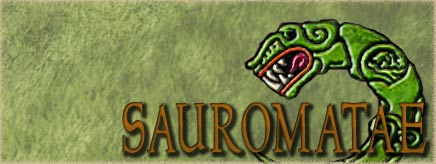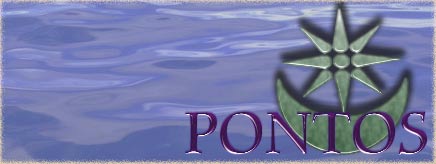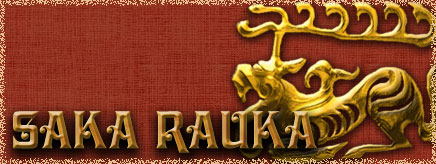Intro
It is January 1847.
During the last years it became more and more evident that the Concert of Europe came to an end. Although the five Grand Powers came to an amicable arrangement in the Balkans affair, Great Britain soon played its own melody, which was guided by the trade interests in the Eastern Mediterranean. Other conflicts like the Schleswig-Holstein affair or the future of Italy kept unsolved. Nationalistic and social problems are ignored.
So in 1847 the new order seems to be that England does not care any longer about what is going on on the continent and concentrates on her colonies and the oversea trade. The remaining four Grand Powers form the HOLY ALLIANCE to keep order on the continent and to free the Balkans from the heathens.
The growth of the industries is still unbroken and so is population growth. Never before it was so simple to get rich. Investments in railroad companies fly high on the stock exchange market. On the other side, many artisans cannot keep up with the new speed of production and poverty spreads even faster than richness.
The performance of this alliance against the Turks and their ally is amazingly poor. The war consumes an enormous amount of money and even the neutral states suffer from it. Furthermore the apparent incompetence of the governments and their staffs raises the unhappiness of their people. Many European countries saw a bad harvest in 1847 and the increase of the food price makes life harder for the poor.
Due to the investments in new industries and the war, it is getting harder to borow money, esp. for countries with high debts and small growth.
The United Kingdom under the government of Queen Victoria is getting stronger year by year. It left the struggles about Ireland and India behind. England is the leader in technology, it has the biggest railroad net and its industrial production is beyond any comparison. Although many say that the quality of the new machined products is poor compared to the traditional goods, the prices are ridiculous low. English goods flood the markets of Europe and the world.
Although England is in an excellent position, not all English are satisfied with the government. Part of the middle class is concerned about the isolation and fear that England will lose the European market. Others blame the Queen for the passive attitude in the Eastern Med. The war cut off important trade routes, esp. those for cotton. These let to an enormous increase in the price of American cotton. Several textile factories already released thousands of workers, the rest decreased wages. This, combined with the increase in food price, mobilizes political parties and unions. In December, more than 20,000 workers and their families gather at St. Peter's Filed near Manchester. They send a note to London demanding minimum wage, reduced price for food, the right to go on strike and changes in the voting right. The administration sends thousands of police and army forces, but it hesitates to attack. This upsets the contractors. They send a note to London demanding to arrest these bunches of criminals and threaten with forming their own securities.
France is the strongest power on the continent and in many things the antipode of England. If England has the biggest industrial production, France has the biggest market. And it does everything to improve in technology and industry. Due to the national railroad program Etoile de France the countries railroad net is growing faster than anywhere else. This gives trade and industry a kick. France produces almost as many steam engines as England these days and the textile industry is growing too. The owners of factories may not make as much profit as their English competitors, but working conditions and wages are much better. Paris is developing to the most shining and glamorous capitol of Europe.
Although the government of King Louis-Philippe was very liberal and improved the living conditions a lot, it failed in the war against the Turks. Although almost 200,000 soldiers were sent to the orient, there is almost no progress. News about the latest battles decreased the popularity of the King and his ministers drastically. After the so-called “Spanish Wedding” affair and the scandal at the Netherlands about 50,000 demonstrated at Paris. The Royal Guard moved into the capitol to restore order, the protesters built barricades and it seemed as if there was once again a political bloodbath at Paris. However, Louis-Philippe decided to give in. He retired and before he left to his English exile he laid the power into the hands of the parliament. Within one week the national parliament passed a republican constitution – once again – and nominated Napoleon, a nephew of the former emperor, to become president of the Republic of France.
Prussia is ruled by King Friedrich Wilhelm. He does not fulfill the expectations of his subject. Many had hoped that after the liberation from Napoleon, Friedrich Wilhelm would unite Germany and lead the country into a new democratic era. The Schleswig-Holstein affair decreased his popularity and after his unsuccessful engagement in the war against the Turks the liberals blame him for sending the army into the wrong war and for being the servant of Austria. The new tax system and the railroad programs develop the industry, but the country is still far behind England and France.
The government tries to protect the economy with import fees, but nevertheless cheap products from England and France threaten the existence of many artisans. The increase of food price makes this even worse.
In December hundreds of Silesian weavers organize and assault factories to destroy the machines. They demand a stop of textile imports, lower food prices and to stop the building of new railroads.
Ferdinand, the ruler of Austria, moved the focus of is policy from the former Holy Roman Empire to the Balkans, where he wants to become heir of the Ottomans. However, this policy is not accepted by all Austrians. Basically, three groups oppose the policy of the Emperor. First of all, there is the German majority, which things that Austria has a holy mission to rule over Germany. Then there are the Hungarians, which fear that new provinces on the Balkans will decrease the already small influence of Hungary. And finally there are the liberal, which think that it is a waste of resources to try to conquer some undeveloped regions instead of modernizing the country. All three think that the failures of the campaigns are nothing but a just sentence by God.
Although the government tried to support the development of the country, progress is slow. Cheap imports from England and rising food prices decrease the happiness of the people, although it is still quiet in the realm – with one exception: south of the Alps, the Italian subject of his majesty protest. They suffer most from the breakdown of the Mediterranean trade. They block the ports and the roads across the mountains.
The Russian Czar Nikolai Pavlovich Romanov is the ruler of 85 million subjects. This giant realm is hard to rule and even harder to develop. Although the Russian made some remarkable progress, the war against the Ottoman Empire discovers the weakness of the huge Russian army. Maybe the alliance with the Western European countries may help to accelerate the development.
The Czar gives the Poles a lot of independency and so far this has avoided many problems. The Kremlin has to worry, however, about the growing influence of the English at Asia. Russian participation of the Black Sea trade and the Mediterranean trade broke down completely.
The Ottoman Empire is very isolated and there is little information. Of course, the war against almost all European countries is the main problem of the Sultan. He struggles for the survival of his realm. But even if this war is successful, he has still more than enough trouble. Egypt is demanding more and more parts of his realm and the trade across the Ottoman Empire is getting more and more unimportant and unprofitable. And the gap in technology compared to the Europeans is getting bigger.
Egypt managed to defeat the French hordes and this certainly boosts moral of the population. But Alexandria and most of the coast is still occupied by the Christians. If Egypt wins, it may raise to a new Great Power in the southwestern Med. If not, it may soon disappear.
Greece is more or less a puppet in the game of the Great Powers. The war against the Ottoman Empire may make the country grow drastically or it may destroy the nation. Unfortunately, Greece has little input on the outcome of the war.
China is the new superpower in the east, at least regarding size. But it may not be able to keep pace with the west.
The United States of America are a still rising star in the western hemisphere. Some say that it is going to be a future Great Power, but this is certainly a bit too optimistically. Right now it has to solve a couple of problems, first.
England has 27 million citizens (including Ireland, but not the other colonies), tax income is 123 million per year, the nation has a debt of 317 millions. The British Army is about 100,000 soldiers, the Royal Navy has about 120 warships all over the world.
France has 35 million inhabitants and a tax income of about 124 million. The debt is 275 million. The army has about 600,000 men and the navy about 40 ships.
Prussia has 15 million people. The income is 38 million and the debt 125 million. The army is about a quarter of a million and the navy has just a handful of ships.
Austria has 32 million people, 78 million income and a national debt of 235 million. The army has about half a million soldiers and the navy has a dozen ships.
Russia has 60 million people, with an income of 85 million and a debt of 195 million. The army has 600,000 men and the navy about half a dozen ships.
Ottoman Empire has 11 million subjects, an income of 9 million and a treasure of 50 million. It has 150,000 soldiers and fleet of about 20 ships.
Egypt has 3 million people and an income of 3 million. The treasure is still 20 million. The army is about 100,000 and the navy about a dozen ships.
Greece has a population of 1 million. Income is 1.5 million and debt is 10 million. It has less than 50,000 soldiers and only a couple of ships.
China has a population of 430 million. Income is 70 million and it does not have debts. The army has 2000000 soldiers and the fleet is not worth mentioning.
USA have a population of about 17 million. The army has 150,000 men and the navy between 30 and 40 ships. Income is 30 million, debt 50 million.







 Reply With Quote
Reply With Quote














Bookmarks